‘We’re vulnerable’: Australian living on Taiwanese island, just kilometres from communist China
It’s a place where spikes line the beach and propaganda booms from speakers. Now an Aussie has revealed what it’s like on China’s potential military frontline.
For many Australians the current diplomatic tensions between Canberra and Beijing might seem a long way off; a stoush between nations many thousands of miles apart.
Not so for Tasmanian Aidan Ellis-Patterson. For him, it’s all very real. China is so close he can see it daily.
“When I look out my bedroom window, I see the skyscrapers of Xiamen,” he told news.com.au.
“If I sit on the beach, communist China is right there. I can see the colour of the taxis on the road and the signs on the buildings.”
Mr Ellis-Patterson lives on Kinmen, an island which through an accident of history is not ruled by Beijing, but is just a few kilometres off the coast of China. It’s so close, refugees have swum the short stretch to freedom. A capitalist outpost within spitting, and shelling, distance of communism.
Instead, it’s part of Taiwan – a now independent nation that China has vowed to take, by fair means or foul.
Recently, Beijing has upped the rhetoric and said it has no fear taking Taiwan by force. If that were to happen, Kinmen could be the first chunk of Taiwan to fall.
“We’re vulnerable,” said Mr Ellis-Patterson. “If China wanted to take the island where I live they could do it very quickly.”
RELATED: Islands just kilometres from China that are ‘vulnerable’ to invasion

‘I DIDN’T KNOW WHERE KINMEN WAS’
Kinmen’s odd status dates back to the 1949. When Mao Tse Tung’s Communist troop took the Chinese mainland, the nationalist forces fled offshore to Taiwan and a flotilla of other islands, including Kinmen.
Beijing has tried several times to take Kinmen, but since 1958 an awkward truce has prevailed.
China insists it should rightfully govern Taiwan. But Taiwan has never been ruled by the communists.
Mr Ellis-Patterson, 34, from Launceston, arrived in Kinmen after an epic multi-year trip around the world. He’s kicked a ball with kids in Iraq, gone ten-pin bowling in Iran and backpacked through Afghanistan.
“Since I finished university I’ve had these big wings and they have taken me to 170 countries.”
When he landed in Taiwan’s capital Taipei, three years ago, the plan was to stick around for a while and teach English; to stay put and finally have a routine.
“I came across this job in Kinmen and I didn’t know where it was. I put it into Google and I thought ‘oh my god, I can’t believe Taiwan has this island just off the coast of China’.
“It’s a really lovely and relaxed; a unique place.”
RELATED: China could be triggered by US special forces training on Taiwan
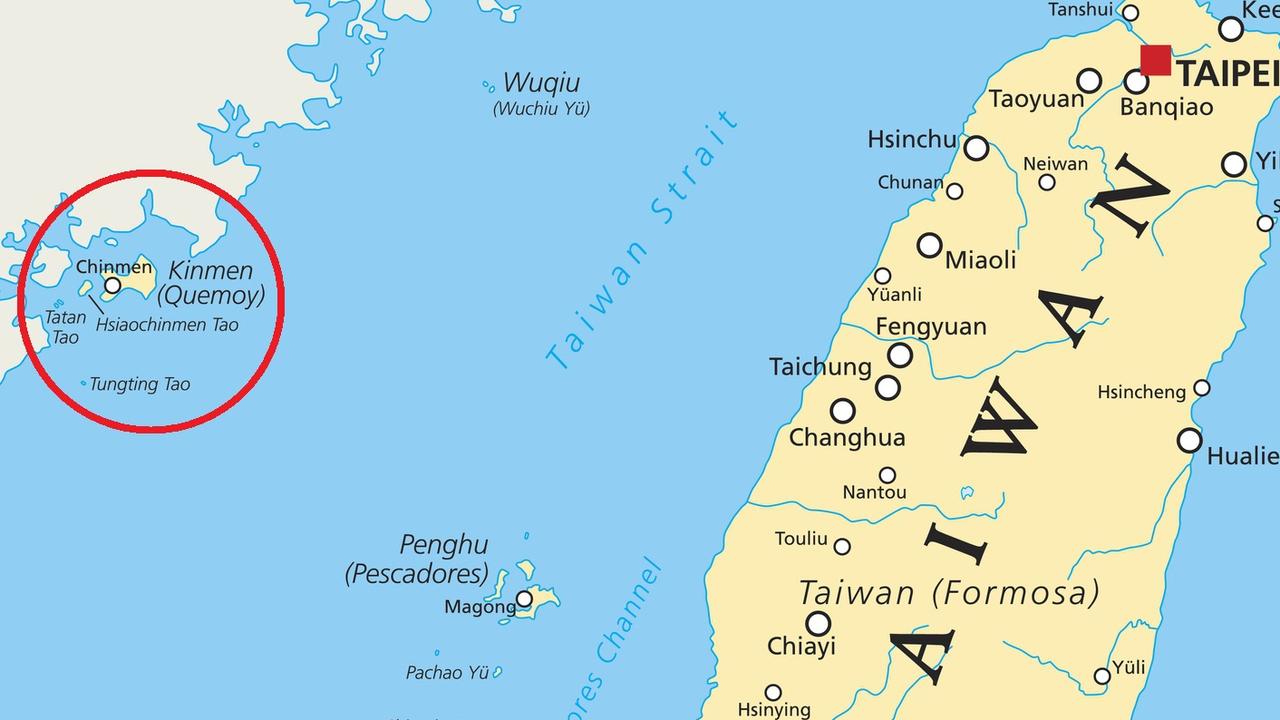
A schoolteacher, Mr Ellis-Patterson said the islanders, who live as close as 4 kms to the Chinese mainland but more than 300ksm from Taipei, have a distinct identity.
“People say they’re going to Taiwan and I would say ‘but this is Taiwan’. They would say, ‘no, this is not Taiwan, it’s Kinmen.’”
The reminders of Kinmen’s battle scarred past, and precarious present, are everywhere. On the coast facing the large Chinese city of Xiamen is a huge concrete structure filled with perfect holes.
It’s effectively a giant speaker that at one time would broadcast anti-Beijing propaganda across the bay to Xiamen’s four million residents.
“It still broadcasts today. But not full volume,” he said.
“Then they have these metal spikes (anti-landing obstacles) on the beach and they keep them because the threat is still there.”
RELATED: ‘War will come’ warns Beijing after Taiwan stocks up on US-made missiles

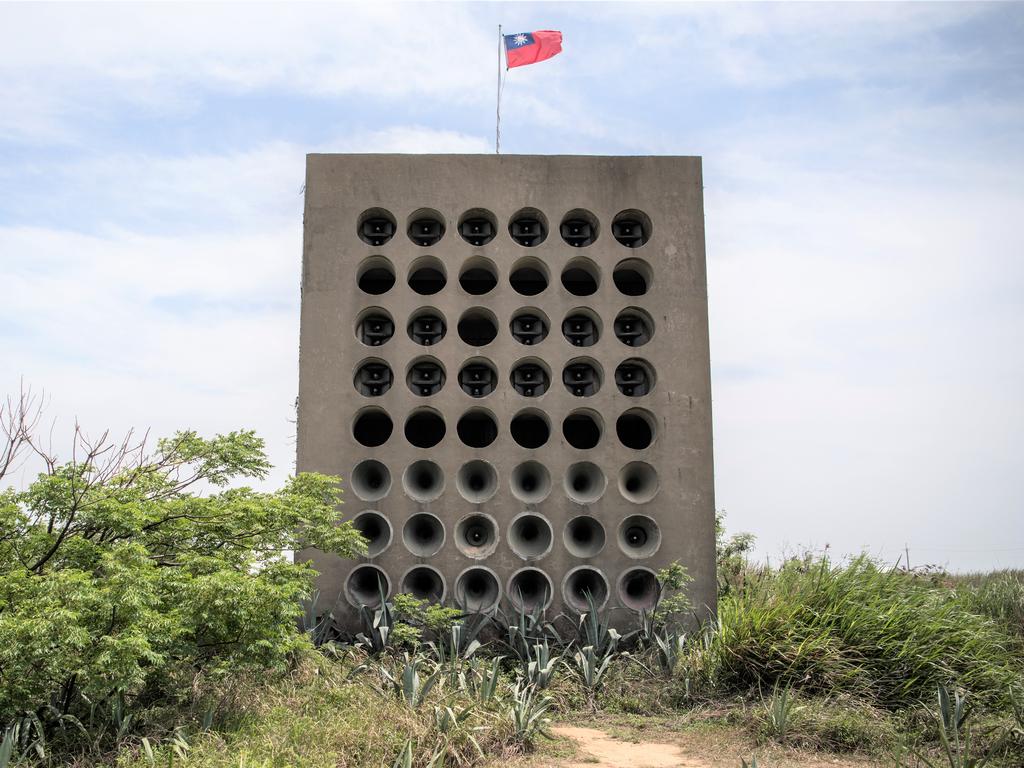
The island straddles the two nations; its food comes from Taiwan but water is pumped from mainland China.
China is also a handy source of revenue for Kinmen. Before the pandemic, streams of day-trippers would take the short ferry ride to Kinmen.
“Most shops accept Chinese currency and when there’s a public holiday in China there are so many tourists here,” said Mr Ellis-Patterson.
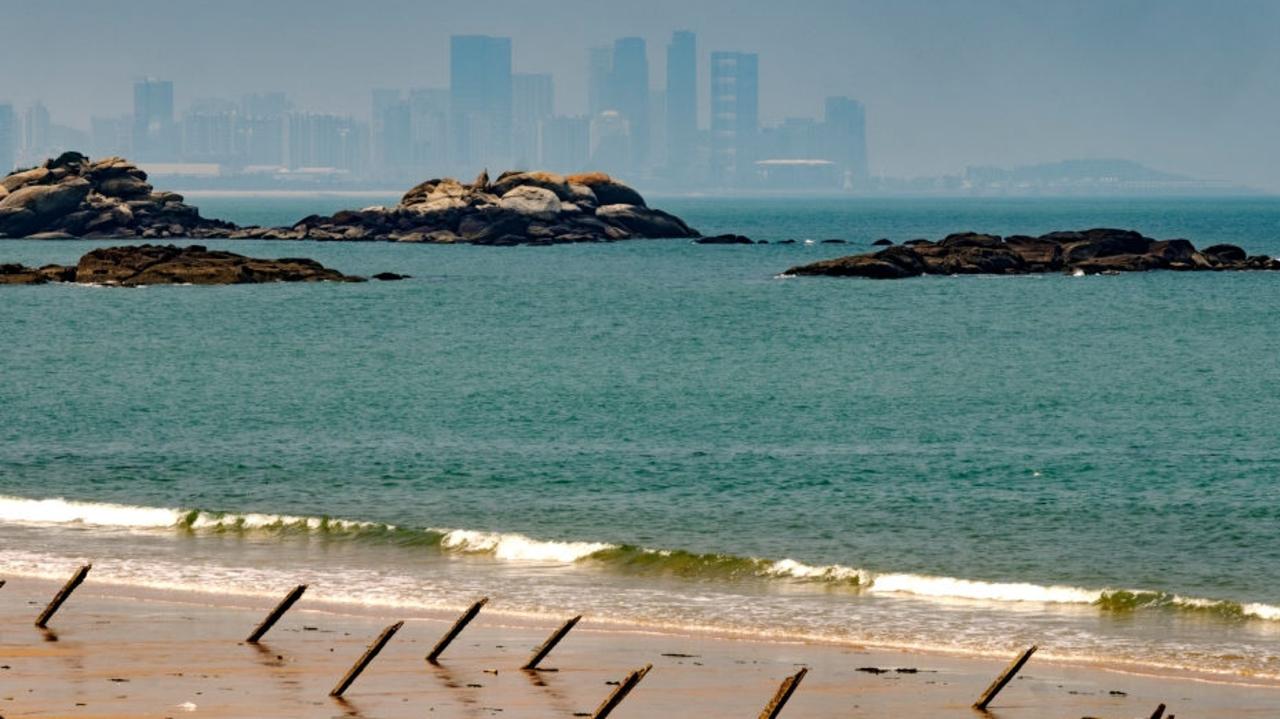
This stark economic reality is one of the reasons Kinmen islanders have diverged from Taiwan politically.
President Tsai Ing-wen, who advocates Taiwan moving further from China, was re-elected in a landslide victory earlier this year. That was put down to the furious reaction of the Taiwanese at Beijing’s increasingly shrill sabre-rattling and military threats.
Yet in Kinmen, Ms Ing-wen received just 20 per cent of the vote, although that was a huge jump on the 2018 result.
“The people here are Taiwanese but they’re so close to China they want to be able to go to Xiamen for the weekend and the tourists to come here. They want it to be normal, they don’t want fighting.”
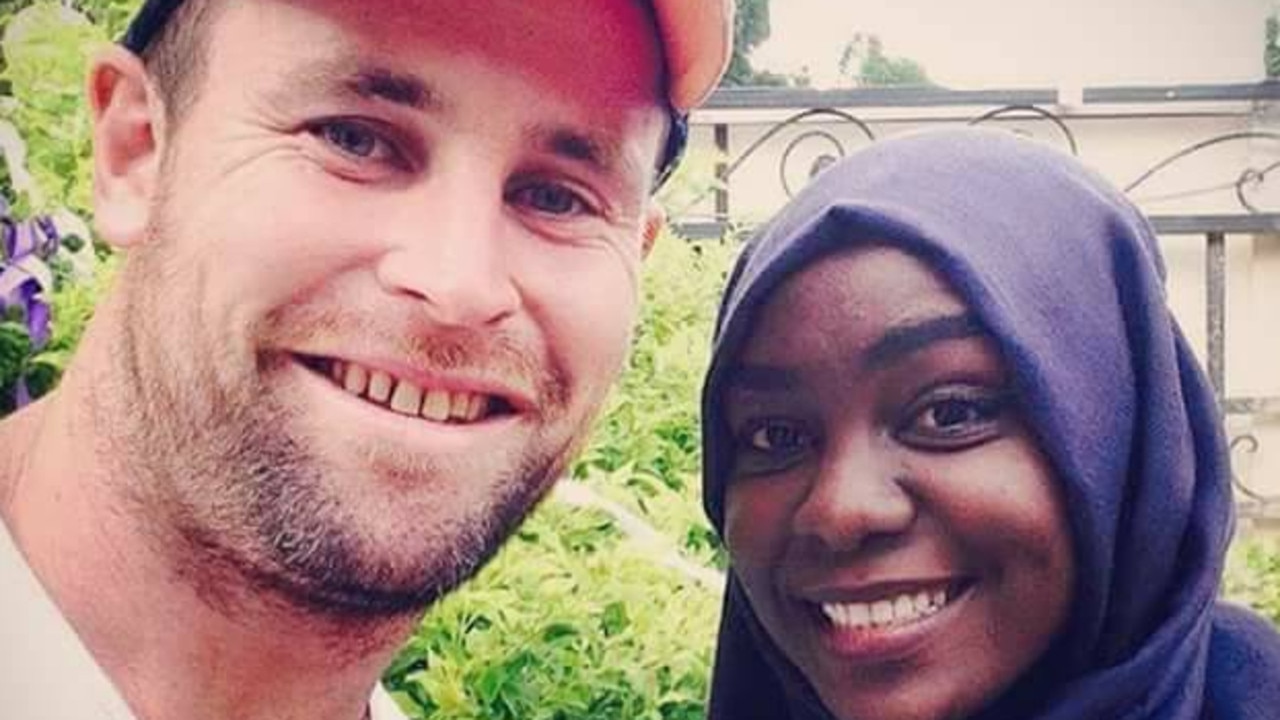
ISLAND VULNERABLE TO CHINA
The China of the 1950s that didn’t have the muscle to invade an island just a few miles from shore is now a lot stronger.
“You get complacent about it. This island is tiny; I can ride my motorcycle across it in 15 minutes. If China wanted to invade they wouldn’t have to do much,” he said.
“I’d be in big trouble. But I can’t see it happening. I don’t feel scared.”
Talking to news.com.au from Taipei, Wen-Ti Sung, a visiting fellow at ANU’s Australian Centre for China on the World, said Kinmen was vulnerable but concurred that a full blown invasion was unlikely.
“It’s feasible but I don’t think there’s a benefit to China to taking them.”
He said Kinmen was an “umbilical cord to greater China” with strong connections between it and Xiamen.
But Beijing also didn’t want to provoke Washington DC.
“The US has somewhat ambiguous security guarantee for Taiwan. While China has the capacity to take Kinmen, it may too small a gain for such a big gamble,” he said.
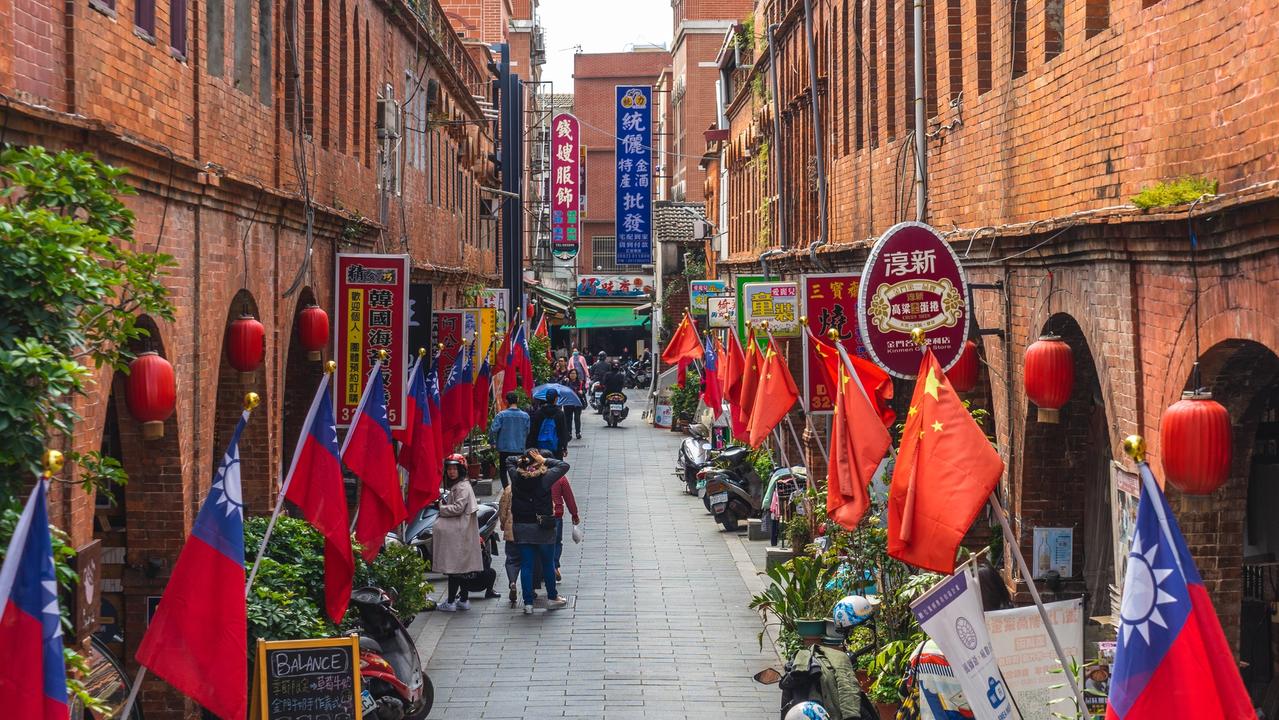
AUSTRALIA RIGHT TO STAND UP TO CHINA
Mr Ellis-Patterson was all for Australia pushing back against China during the present diplomatic crisis.
On his travels around the world he said he had seen countless impressive Chinese-backed infrastructure projects.
“It looks like China is helping but they know the governments don’t have the money to pay for them, so China takes over that port or airport and then that country might change their allegiance from Taiwan to China.
“China wants to bully Australia too and we’re saying no and that angers them even more. They can bully other countries but they can’t bully us, we’re not going to bow down to Chinese pressure,” he said.
“If I was a wine grower I can see the issue for them; but Australia can’t fall into the trap of other countries.”
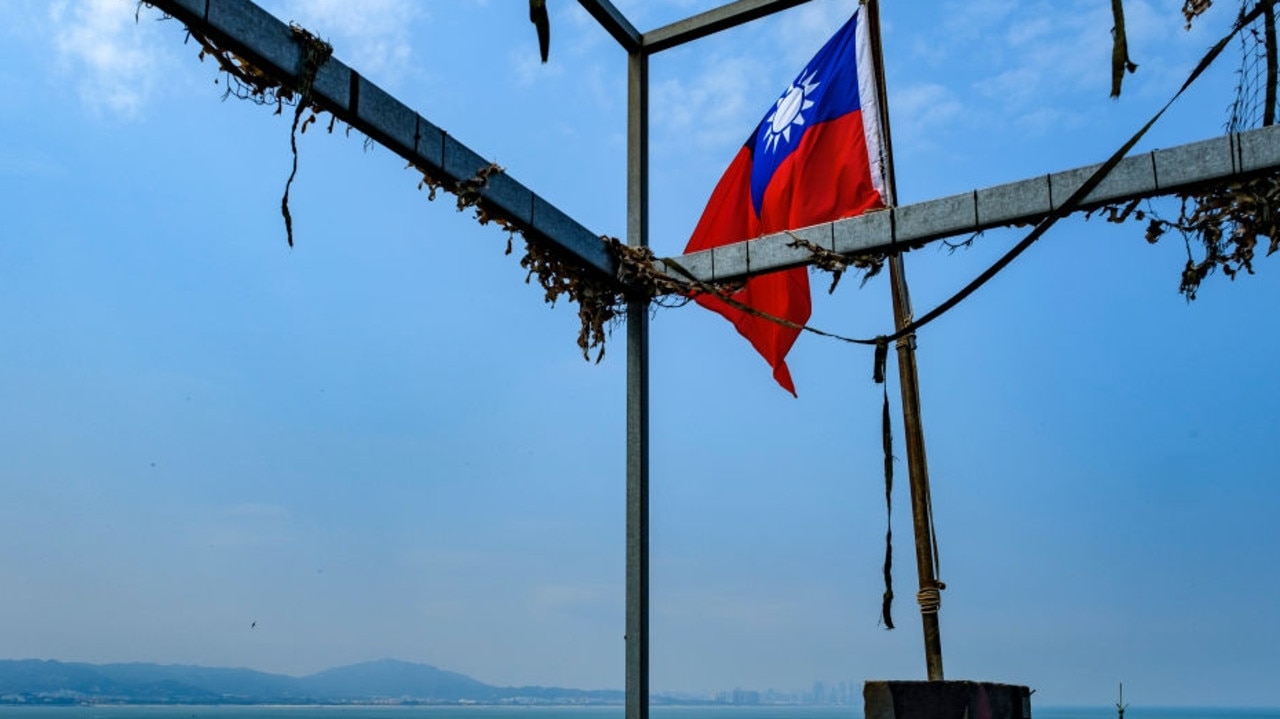
Perhaps, ironically, Mr Ellis-Patterson hasn’t been to China.
“It’s ludicrous. I’ve been all around the world and the place I’ve seen every day from my bedroom window for three years is the one place I haven’t visited.”
Again, it’s a quirk of Taiwan’s disputed status. China doesn’t have an embassy in the country because it doesn’t recognise it as, well, a country. So Mr Ellis-Patterson would have to apply for a visa in Hong Kong or Australia and it would likely cost more than $500.
“It seems a lot for a weekend trip”.
At the moment it’s all theoretical anyway. Taiwan, which has barely been touched by COVID-19, has closed its borders including to China.
But Mr Ellis-Patterson said he was curious to make the short hop to Xiamen one day. That’s despite the fact with Canberra-Beijing relations in the doldrums he might get a frosty reception.
“If I’d listened to other people’s warnings, I wouldn’t have done much in this world”.




